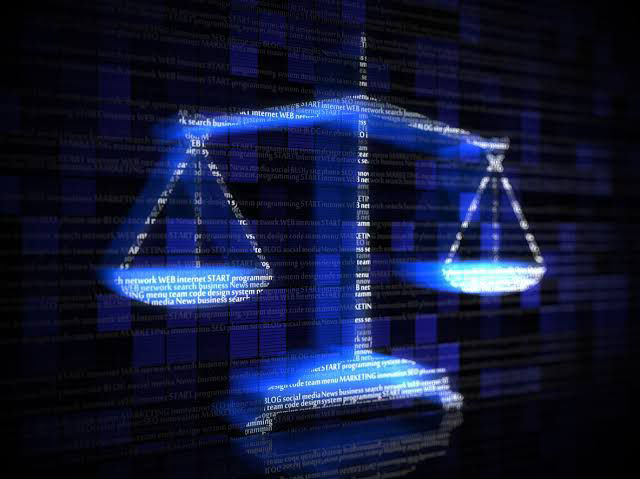Legal tech refers to the use of hardware and software in the delivery, assistance, and support of legal services. With the help of legal technology, judges, attorneys, and law firms can increase their overall effectiveness and adjust to an increasingly dynamic working environment.

Today, almost all lawyers utilize email and other technological tools on a daily basis in their work. Reputable law firms employ software programs for both internal and external operations to ensure the quick completion of work tasks.
Technology nowadays unquestionably plays a crucial role in improving efficiency and expanding access to justice around the globe. A legal tech app like the legal x has also transformed the simplicity, speed, and efficiency with which legal professionals carry out their duties.
Due to the seamless connection of these days, the employment of technology by lawyers may not be all that noticeable. We must admit that both have advanced significantly over the years, from the use of typewriters to the use of Photostat machines to the use of artificial intelligence (AI).
Oladipo Bali, a Nigerian attorney who released what was likely the first legal technology in Nigeria in 1997, a digest of law reports (Digest Law Reports), on CD-ROM, organized the first information technology law seminar for attorneys in 1995. (Compulaw, 2011).
Some other reasons why the legal profession needs to embrace legal tech include the following
The goal of legal tech is to increase client retention for law firms. By enhancing the efficiency of the firm’s operations and the delivery of legal services, some of these technologies like the legal x assist law firms in providing better client service. These themes include big data, machine learning, smart contracts, social networking, cloud computing (cloud storage), e-discovery, and online resources. The term “Legal Tech” also refers to a number of technological developments, including Blockchain and Artificial Intelligence, which many experts believe will fundamentally alter the legal industry.
These days, it is fundamentally expected that lawyers have IT abilities and that law companies improve their ICT infrastructure. The foundation for further development is thus laid. Investing in the company’s online presence on social media and the internet at large is the logical next step. This is a new area of practice for lawyers in Nigeria and most of the rest of the world, and it has emerged recently to reshape the traditional ways that lawyers provide their professional services. This fact explains the rarity of judicial decisions in this area, and while there hasn’t been any legal tech pronouncement in our jurisdiction up to this point, a foreign case on the topic might be relevant to this discussion.
Law is not as threatened by artificial intelligence as it was by computers. It is clear when it comes to transformative technologies, which include those like AI and machine learning that will genuinely change the way businesses operate. Technology leaders report that 73% of them are at least moderately equipped to recognize the potential advantages of transformational technologies or those that produce observable new business results. AI, machine learning, predictive analytics, and blockchain are examples of such technology.
The advantages of technology for lawyers are made clear to them (through the Nigerian Bar Association for instance).
Additionally, it is advised that facilities be set up to promote technological advancement in general. It might also be sage if the General Council of the Bar revisited the provisions of the Rules of Professional Conduct for Lawyers to include, among many other long overdue updates, the requirement that lawyers stay current with relevant technology.
The good news is that you can make the Internet safer by taking the appropriate precautions, such as installing security software and avoiding insecure internet access.
Lawyers are among the most important professionals, and technology has developed into a crucial tool of the legal profession. Knowing that a lawyer is current with all current technological and digital trends can be a significant motivator for a client to hire a lawyer because it demonstrates their commitment to using all available resources to effectively represent their clients. In Nigeria, the advantages of legal technology exceed the drawbacks. The trends are simple to understand and entertaining to follow, but in order for a lawyer to compete in our home market, they must master the fundamentals of IT and become knowledgeable about how it works.
In times like this, when the world is moving fast and everyone is embracing technology in their various fields, it is essential that the legal profession embrace technology in order to facilitate a swift administration of justice.
From our couch to yours,
The Legal Concierge.
To read more articles such as this and get more updates. Kindly follow us on Facebook, Instagram, LinkedIn, and Twitter.
BIBLIOGRAPHY
- Mathew U, “Making Legal Technology A Viable Sector In Nigeria.” (Making Legal Technology A Viable Sector In Nigeria – Fin Tech – Nigeria, December 20, 2021)
- Atoyebi M SAN, “Legal Technology In Nigeria And Why Lawyers Need To Keep Abreast Of The Trends – TheNigeriaLawyer” (TheNigeriaLawyer, June 27, 2020)
